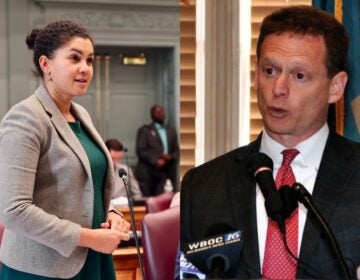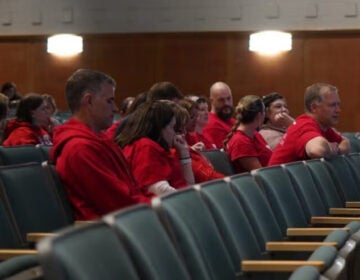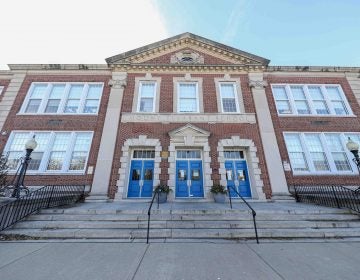Created and taught in Philly region, Global Kids offers multicultural lessons
Author Homa Tavangar created ‘Global Kids.’’ Delaware teacher Wendy Turner is using the tool to spread cultural awareness among her second-graders.
Listen 3:53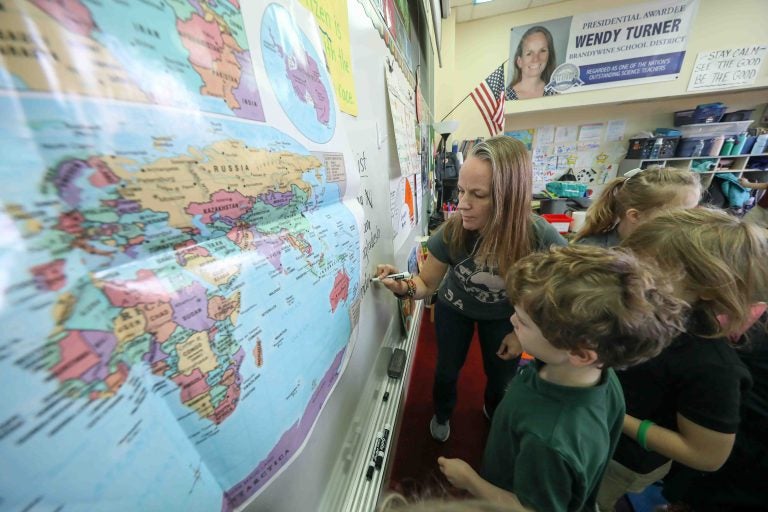
Teacher Wendy Turner writes down notes on the whiteboard during a global awareness session at Mount Pleasant Elementary School in Wilmington. (Saquan Stimpson for WHYY)
“We learned how to say ‘thank you’ in many different languages and many different ways,” Wendy Turner told her second-grade class at Mount Pleasant Elementary, north of Wilmington. “And today we’re going to do an activity that’s related to South Africa. It’s called ubuntu. Let’s all say ubuntu.’’
The word she and the kids are repeating comes from the Zulu language and means “I am because we are.” The lesson is one from a set of 50 index cards called Global Kids.
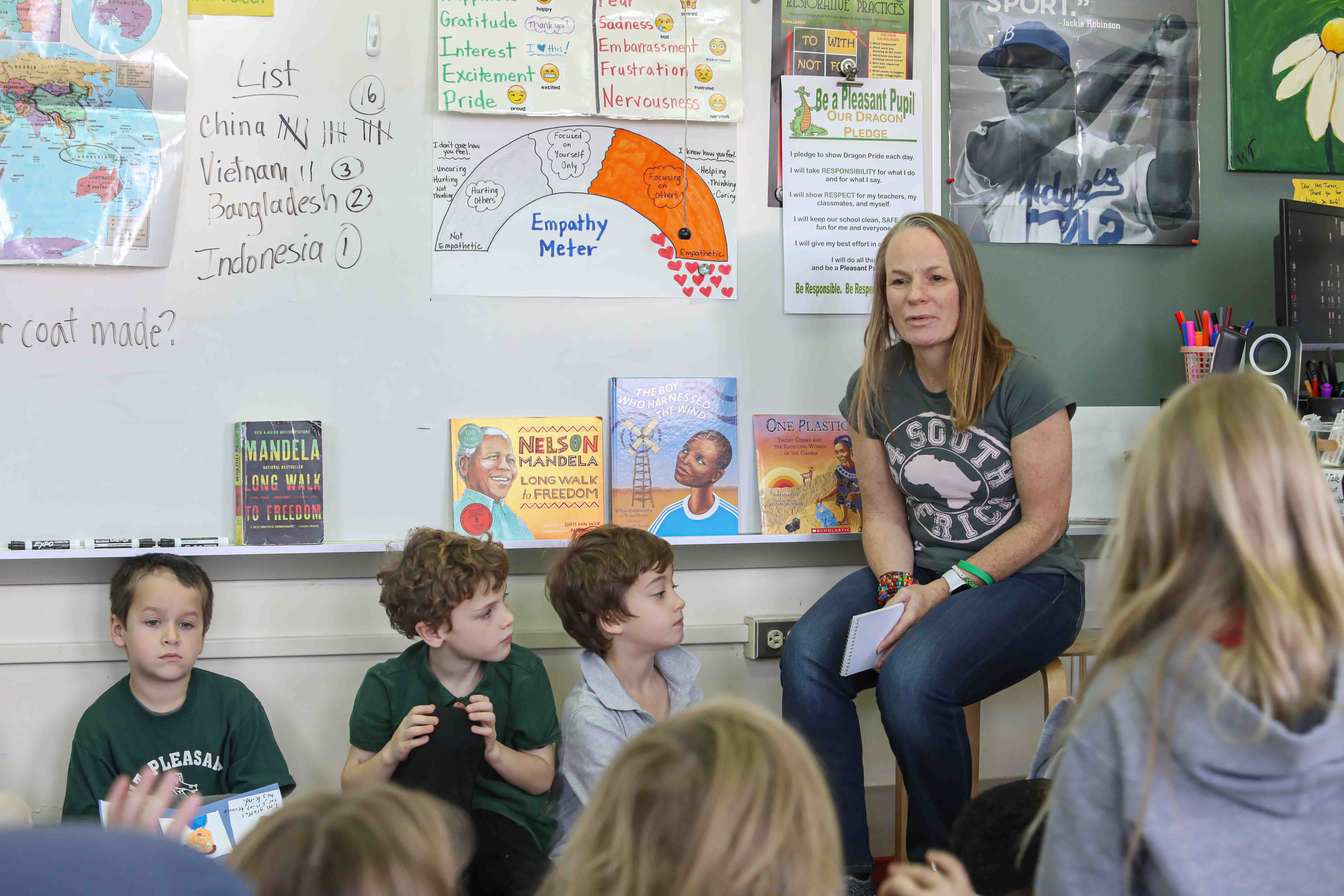
Turner, the 2017 Delaware Teacher of the Year, learned about “ubuntu’’ during a visit to South Africa with an educational group. It’s also one of the activities on the Global Kids cards.
“The practice of ubuntu means caring about the needs of others by being kind, helpful and generous,’’ Turner told her class. “Ubuntu reminds us that we are all connected.”
The kids begin making collages of the people most important to them. Avery Gouveia has a long list.
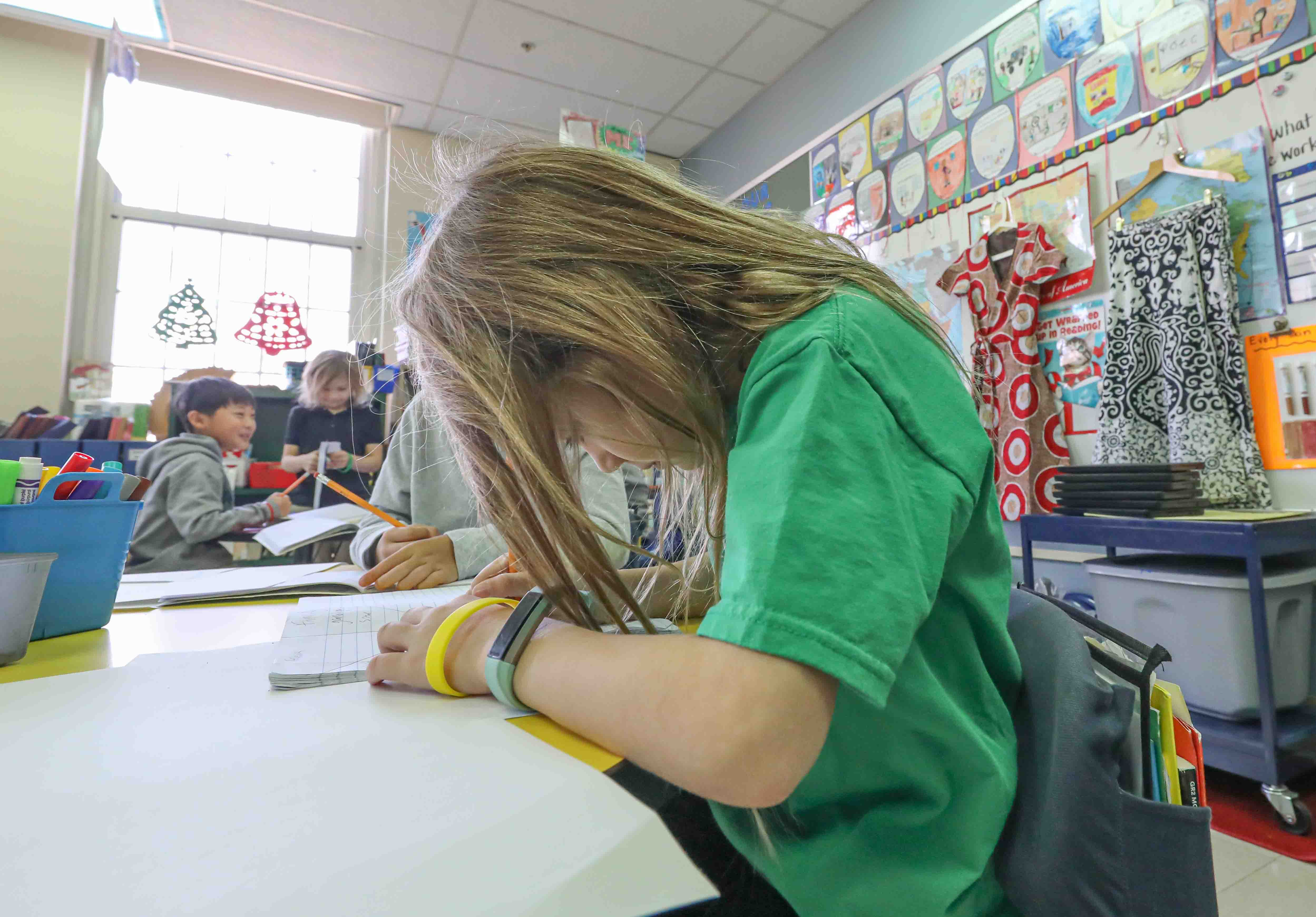
There’s her grandpa Chuchu, her sister, indoor soccer coach, soccer teammate Lily, Turner, as well as her first-grade teacher and friends Amelia and Claire.
Avery doesn’t hesitate when asked what the exercise is about.
“I am because we are,’’ she replies. “Ubuntu.”
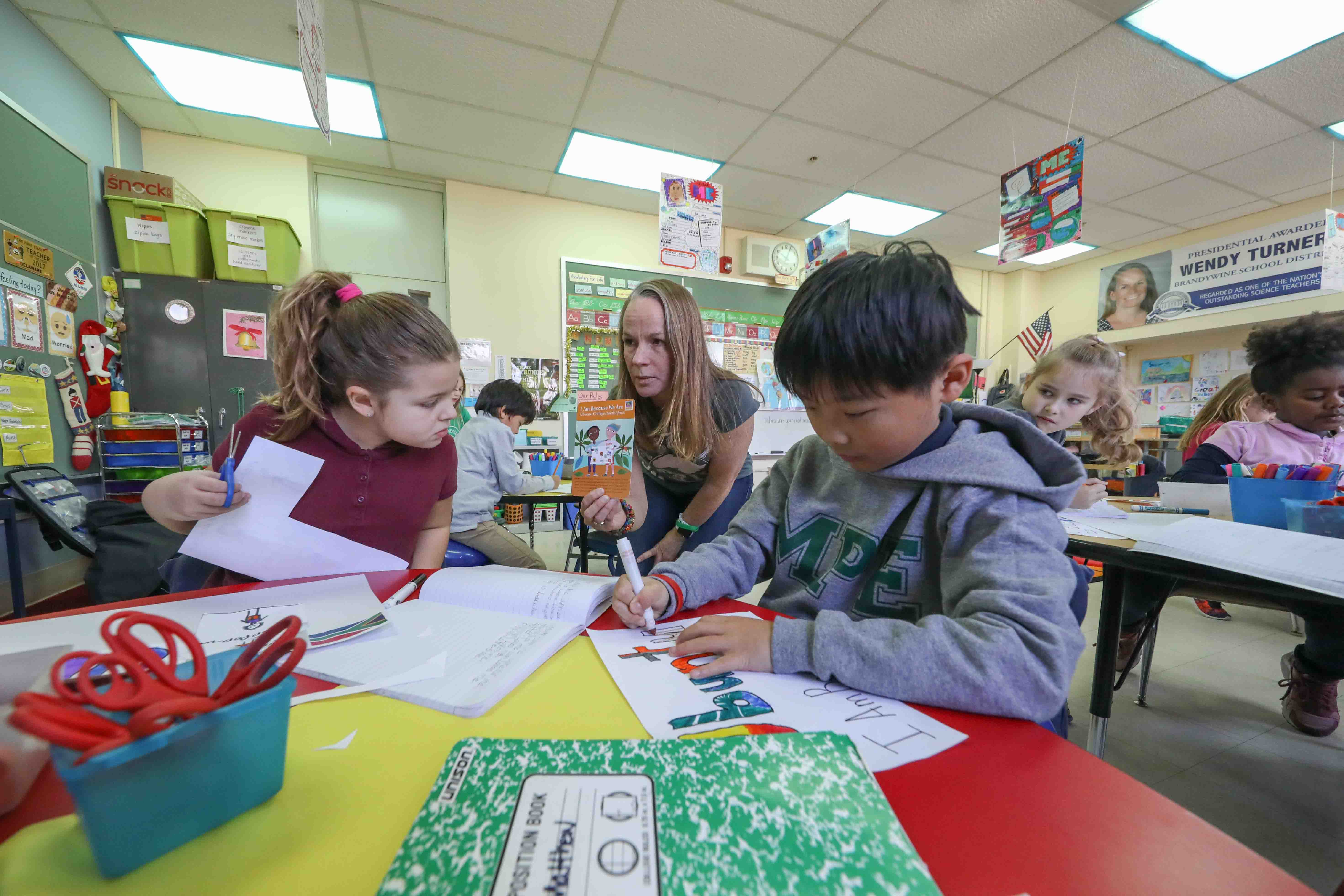
Turner said she wants the kids “to investigate the world” and learn about cultures beyond America’s borders.
She calls Global Kids another tool to open their eyes. The cards have dozens of lessons and activities. There’s the Wishing Tree from Japan. The Mitzvah Chart from Israel. The Plastic Penalty Pot from Rwanda.
“This is a little more hands-on,’’ she said. “They’re very responsive to it. Their knowledge about places far away is limited. It really is.”
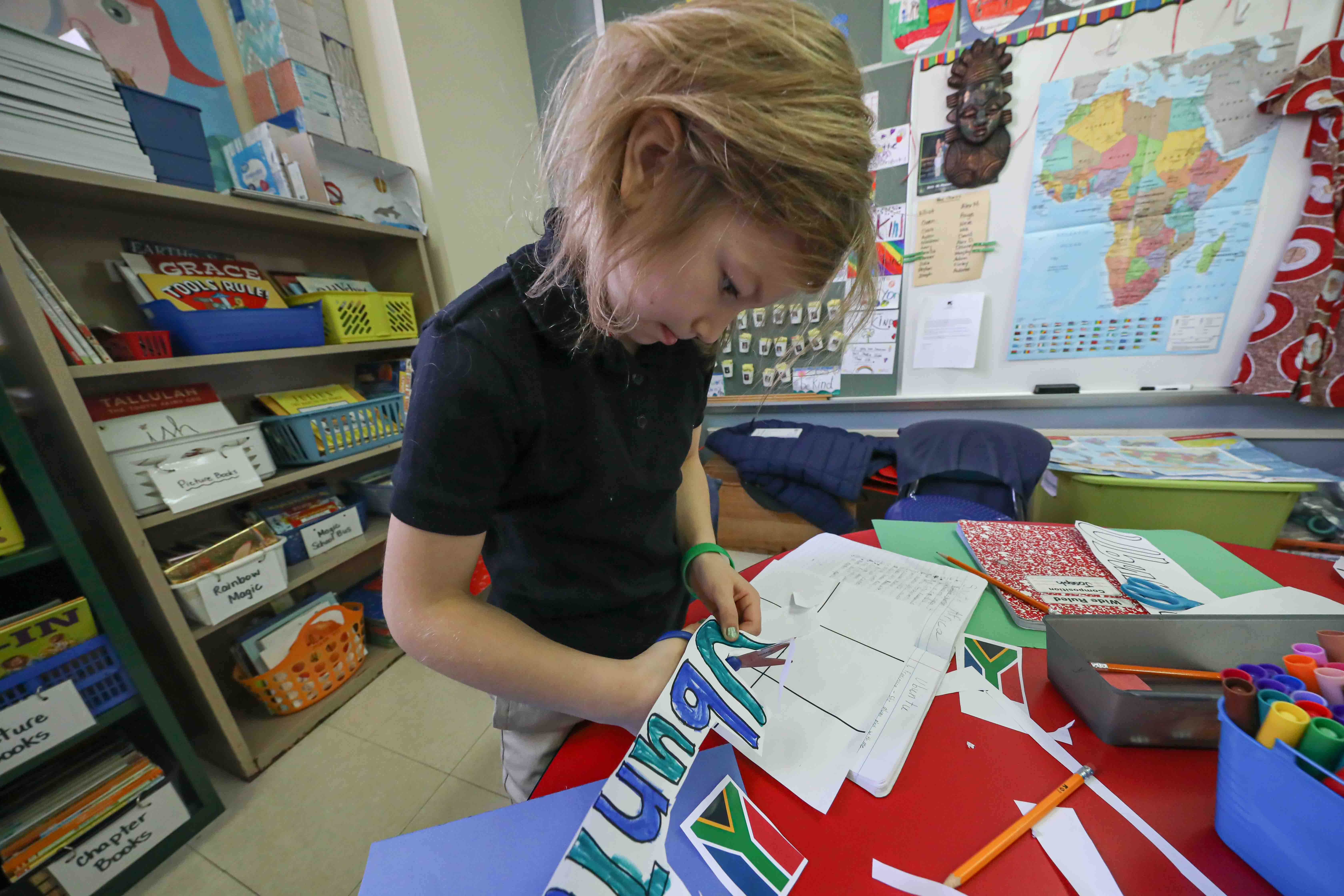
Global Kids was created by author Homa Tavangar, who lives in Villanova. It’s her latest publication aimed at expanding children’s horizons.
The kit has “easy activities for classrooms and for doing at home that introduce kids to cultures from all over the world,’’ she said, “and very deliberately we’re trying to move beyond the single story of a culture, defy stereotypes, build empathy and kindness.”
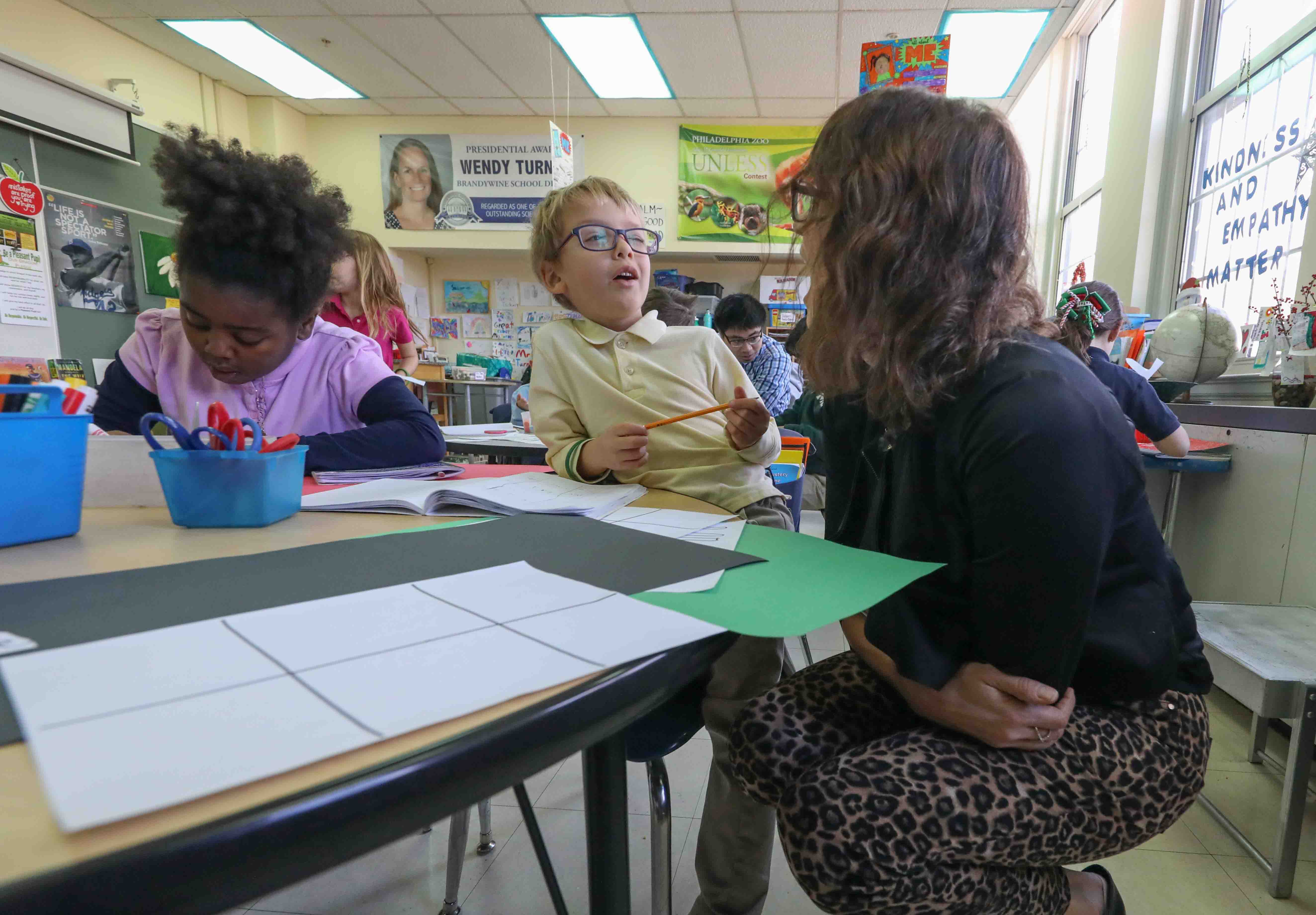
Mention Rwanda in the west, and Tavangar says most people think of civil war and genocide from a quarter-century ago. But the African nation was also the first to ban plastic bags, she said.
“Our activity is to create a penalty pot — which is sort of just decorating a jar to collect a fine that a child might fine their parents if they use a single-use plastic bag or a straw one time — decorated with the Rwandan-inspired style of artwork that we show on the card,’’ Tavangar said.
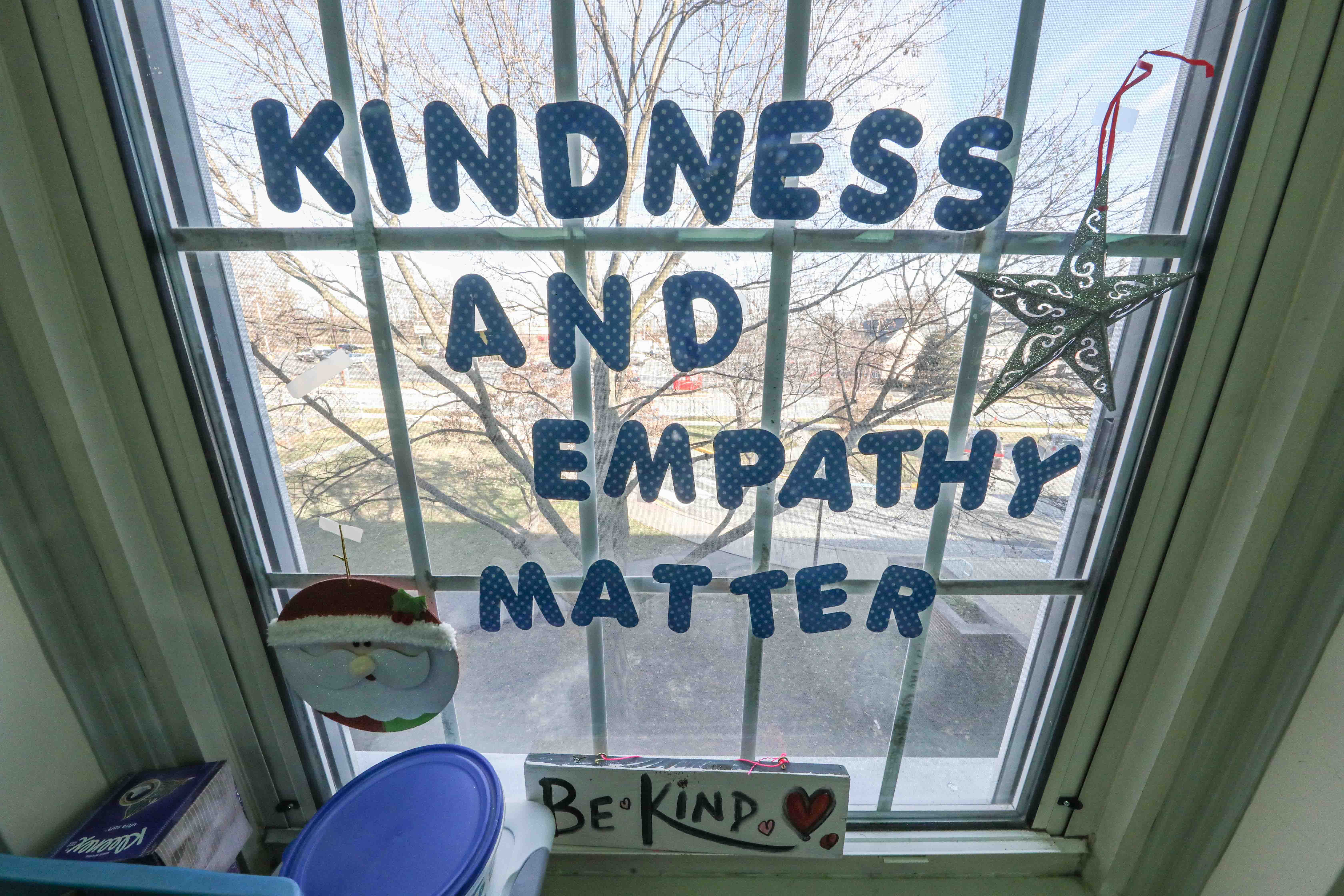
“It’s a beautiful activity that’s meaningful and gets kids aware and paying attention to how many plastic bags we use and have all around us, but at the same time it’s teaching about a country,” she said.
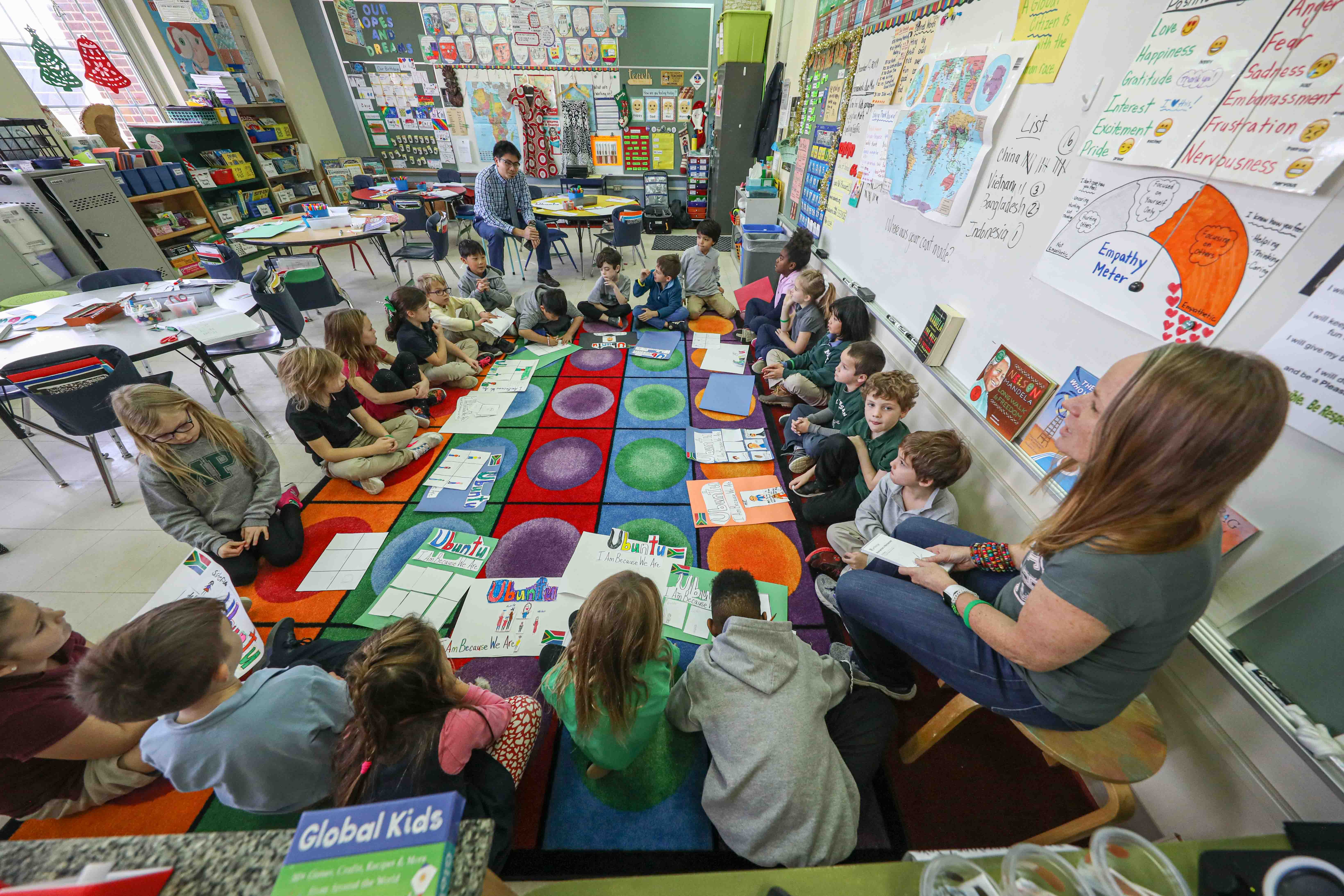
On the day WHYY visited Mount Pleasant Elementary, architect Gabriel Cheung was visiting his daughter Neve. He likes the Global Kids lessons.
“I definitely think it’s something that’s relevant in today’s society,” Cheung said. “We are a global society, a global community.”
WHYY is your source for fact-based, in-depth journalism and information. As a nonprofit organization, we rely on financial support from readers like you. Please give today.



